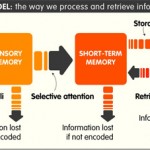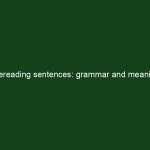Choosing your own personal style is hard, especially if you cannot afford 1:1 session with Anna. To help somewhat with this challenge one can use psychological typology as a guiding principle. For years the psychological typology has been measured for purposes of career selection using MBTI or big five OCEAN indicators. There is some correlation …
KeyToStudy Offers:
Memory, Speedreading, and Analysis
KeyToStudy Overview:
Memory, Speedreading, and Analysis
ProlificFocus Overview:
Productivity, Motivation, and Projects
ProlificFocus Offers:
Productivity, Motivation, and Projects
Getting things done
Working on your skills for a week or two is not very hard. However, to qualify for sufficient memorization and superlearning skills ~12 weeks of work are required. And once you finally qualify, this is simply a milestone in life-long learning career. This is very similar to sports. Many people are passionate during the first …
Remembering formulas
VS on Facebook: Is it a good idea to use mind maps for formulas (like in Physics, Math etc) Lev Goldentouch: Using mindmap for formulas is pretty much what a computer does. As human, I would also dual code small funny animations of each specific factor in the formula and why/how it changes the end …
Conciousness and attention dissociation
Many of our students read one thing while thinking about something else. This discrepancy is known as consciousness and attention dissociation and is counter-effective. For example, if you try to generate markers and worry about the quality of your markers at the same time, your attention is focused on the text, but your consciousness is …
Path to mastery
All learning follows 4 basic stages. The four steps to mastery also apply to superlearning. 1. Unconscious Incompetency. This is the phase most people begin from. Typically people read at 200wpm 30% retention and feel good about it. After years of miseducation people either do not believe they can improve or do not want to …
Handling mental blocks
Occasionally we try to focus on the task at hand and our mind goes blank. Now, what should we do next? Do not give up! There are some tricks that can help to some extent… Relax. Very often if you simply relax your mind block will evaporate. Try some simple visualization exercises using simple objects, …
Note taking and study groups
Does superlearning supersede note-taking and study groups? Not sure. Here are some thoughts about it. Note-taking is the most conservative learning method I know. A student seats somewhere int the middle of the room and summarizes everything the teacher says in his notebook. Handwriting works better than typing, since it includes muscle memory, generates more …
Food for your brain
We all kind of know what is the healthy diet for the body, but not for the brain. So I searched for a friendly doctor, and sure enough, found a nice diet for the brain. The cool thing about this diet: it is also very tasty. So please enjoy. One or two cups of coffee …
Forgetting as a way to handle traumas
Occasionally we ask ourselves: why do we forget at all? What if we could remember things forever? Apparently forgetting things helps us to deal with traumas. One of the best ways to deal with traumatic experience is rewriting the traumatic memory. Some courage is required, so do not attempt this if you do not have …
Prereading sentences: grammar and meaning
Not every part of a sentence is equally important. When you are prereading/skimming text you need to understand what you are looking for. Is it an event, a definition or a feel? Accordingly you can easily summarize long texts into 1/4 of their original length. The summary words will form the basis of your markers. …
Continue reading “Prereading sentences: grammar and meaning”











